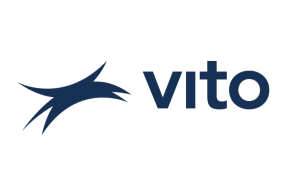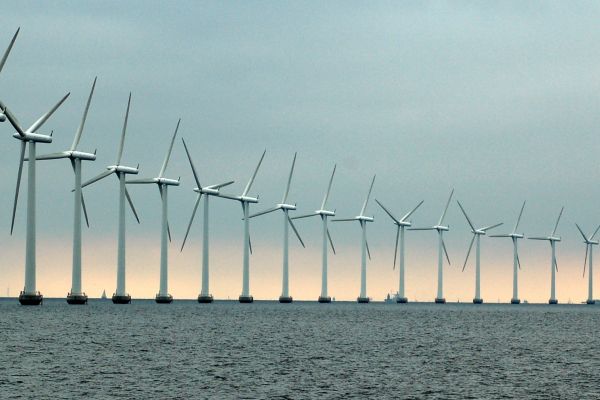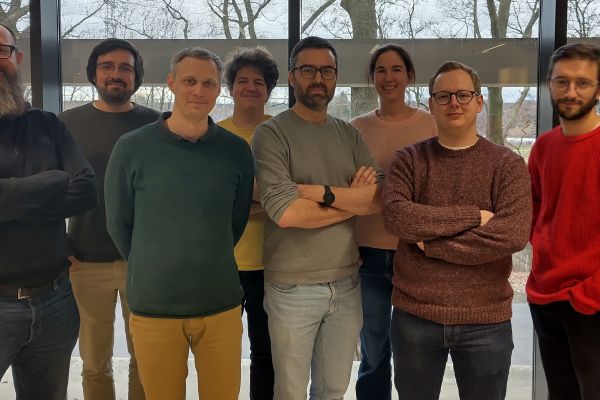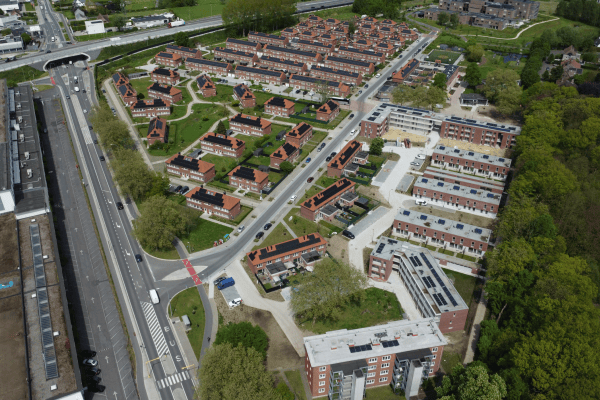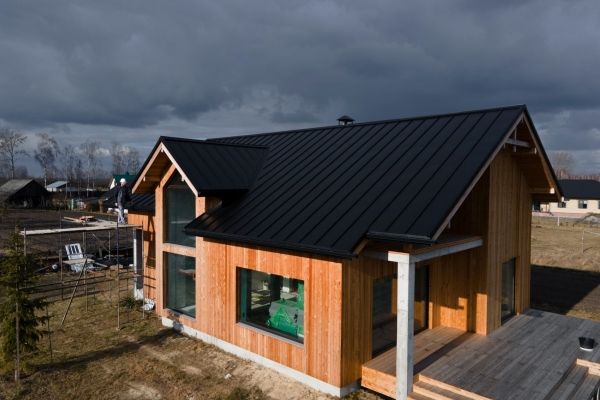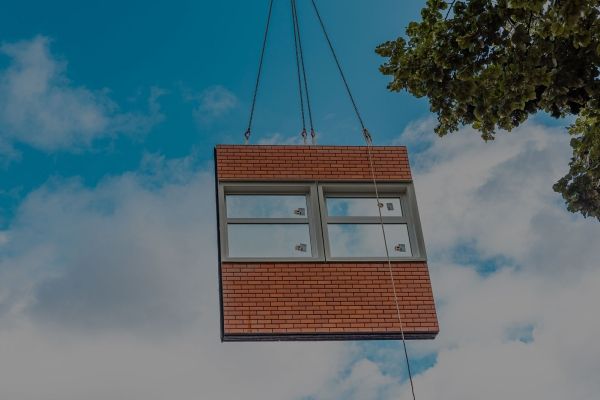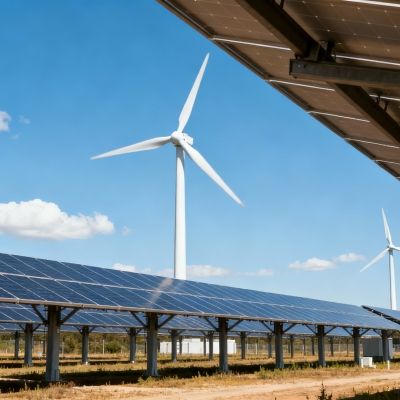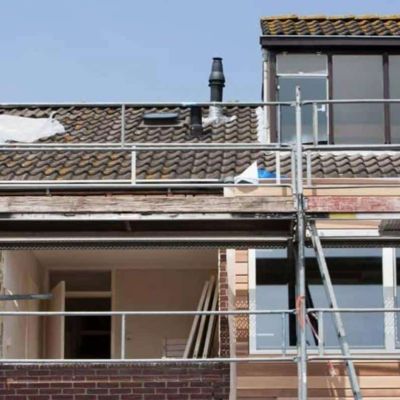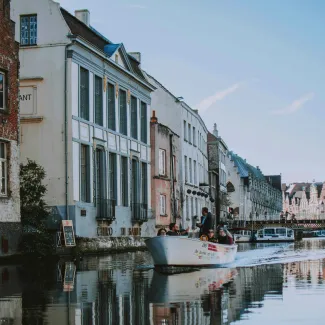
Wijkrenovatietool
To boost the renovation pace in Flanders and provide a clear renovation path to citizens, a "Wijkrenovatietool" is being made available to local authorities and their partners. The Digital Twin Wijkrenovatietool will combine the most accurate and reliable data sources with the best available tools and analyses to concretise and monitor data-driven collective renovation trajectories up to and including implementation. In combination with simulation tools and algorithms from VITO/EnergyVille, this tool will be used to determine the most suitable renovation and decarbonisation strategy.
Thanks to the toolchain being developed in this project, not only can the renovation needs of entire neighborhoods be digitally mapped at once, but opportunities for collective trajectories for both heating and insulation are also identified. This specific advice is then translated into a strategy for each individual home, with the Energy House taking a central role between the city or municipality, the resident, and any contractors carrying out the renovation work.
DITUR-project
The climate crisis on one hand and the energy crisis on the other create the necessity to accelerate the renovation of our outdated housing stock. To achieve this acceleration, barriers between different players in the ecosystem - citizens, the renovation sector, and governments - must be minimised as much as possible.
In the Digital Twin for Upscaled Retrofit (DITUR) project, VITO/EnergyVille, together with private and public partners, has already built knowledge to facilitate this ecosystem around the renovation challenge. Within this, the development of successful renovation strategies was divided into three consecutive steps:
- Step 1: Identification: Using data analysis to detect opportunities for collective renovation and sustainable heat networks.
- Step 2: Engagement: Involving and convincing homeowners with a clear plan tailored to their neighborhood and home.
- Step 3: Implementation: Preparing, executing, monitoring, and reporting on the renovation work.
The Digital Twin Wijkrenovatietool project builds upon the methodology developed in the DITUR project, where a toolchain is being developed to support the above three consecutive steps, each taken up by different stakeholders in the renovation process. Central to this is the creation of a new digital data platform where all relevant societal, technical, and energy-related data concerning collective renovations in Flanders are monitored, updated, and supplemented.
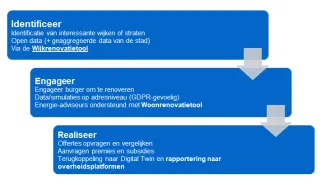
Ondersteuning van de renovatie-uitdaging in 3 stappen, zoals uitgewerkt in DITUR.
This data and the simulation results based on it are then visualised in the three steps, tailored to the involved stakeholder(s) according to their role and authority in accelerating the renovation wave. In this process, the data flows between the various stakeholders and departments of the Flemish government are optimised, and this data is processed in a uniform manner.
Through the provided steps, this project aims to support the different stakeholders in accelerating renovation trajectories, scaling up collectivisation, and monitoring the ambition and pace of renovation.
Three steps
The data and algorithms linked to the Digital Twin Wijkrenovatietool are accessible through three steps. Each of these steps is tailored to a specific application area and goal, serving as a separate tool contributing to a comprehensive solution for collective renovation projects:
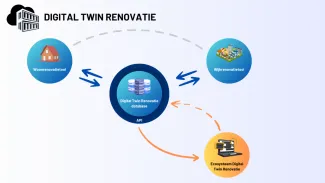
The 3 steps in the toolchain are interconnected. With the right contractual agreements between public and/or private stakeholders, data, insights, and authorities can be transferred or shared. Personalised advice for a resident will only be provided and delivered with explicit consent.
Data
The Digital Twin Wijkrenovatietool collects data about built environments from various data sources. In 'Phase I' (see Figure 3), which runs until June 2024, this is primarily limited to open data sources available from the competent government authorities. However, this already allows for a good assessment of the current state of Flemish homes at the district, neighborhood, and city levels.
Energy houses then play a crucial role in the next phase to complement and refine the data at the individual home level (engagement step) and to keep it up to date after renovation (implementation step). Through this more detailed data, a long-term plan is created for the entire residential building stock of Flanders.
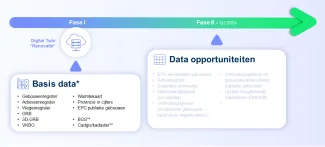
However, the Flemish government is rapidly digitising, with additional data points (see Figure 3) being made available to relevant parties—with the correct GDPR rights—via digital platforms. The Digital Twin Neighborhood Renovation Tool project aims to make optimal use of this to not only better map the (collective) residential sector but also to add other application areas to the toolchain developed in this project. Some desired themes identified in stakeholder discussions include circularity, green-blue level, heat stress, better estimation of building dimensions in LOD2 or LOD3, etc.
Additionally, this can also help better unlock the (collective) non-residential sector to ultimately cover the entire built environment.
However, before these additional data sources can be linked, a lot of alignment is needed with and between the involved parties. It is essential that this project evolves into a widely supported program in which the various involved government departments play their role.
Privacy
VITO/EnergyVille is committed to ensuring the security and protection of the personal information processed and providing consistent data protection at all times. If you have any questions regarding compliance with applicable laws, you can contact the Data Protection Officer (DPO) at the following email address: assist-dpo@vito.be.
For detailed information about the processing of personal data by VITO, you can consult the privacy statement here.
Would you like to know more?
Feel free to contact Tom.
There were no items found.




